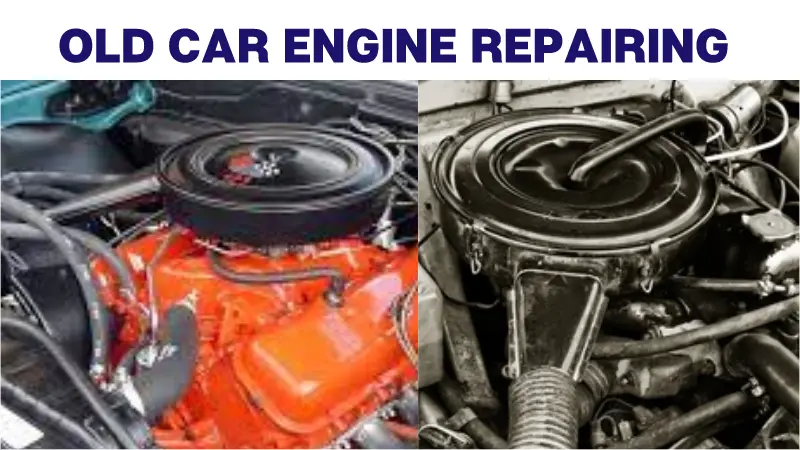Diesel Truck Tips to Keep Your Truck Running for a Long Time

Growing up in Jonesville, where trucks are more than just transportation but a key part of life, I’ve seen firsthand the power and torque that diesel engines bring to the road. These hardworking vehicles are indeed the backbone of important industries across the USA, not just in Surry County.
Switching to diesel from unleaded gasoline was among the best decisions I made for my work needs, discovering not only fuel efficiency but also the remarkable ability of these vehicles to hold their value over time. Whether it’s hauling heavy loads, pulling a camper for a weekend getaway, or just the daily drive, diesel trucks are built to last.
Diesel engines require a special attention to maintenance to keep them running efficiently. I quickly learned that diesel differs significantly from gasoline; its maintenance tips are essential to avoid standing on the side with a truck that won’t turn with the key. Regular checks and balances ensure that these engines fire up and run smoothly, making every mile on the tank count more, be it on city streets or the open landscapes of Surry County. Beyond efficiency at the pump. These cleaner-burning engines also reflect a switch in how we approach vehicle maintenance – it’s not just about the fuel but sustaining the power needed for work.
In Jonesville and beyond, among drivers and truck enthusiasts. The mantra for keeping a diesel truck in top condition isn’t complex. It starts with understanding the unique needs of diesel engines and incorporating habits that ensure longevity. From ensuring the right diesel is powered through its veins to acknowledging its crucial role not only in personal conveyance but in supporting the backbone of USA’s industries. The journey is rewarding.
Inspect and Replace Gaskets
Maintaining a diesel truck requires a vigilant eye, especially when it comes to ensuring the longevity and efficiency of your vehicle. One critical aspect that should never be overlooked is to inspect and replace gaskets at the slightest suspicion of wear. Gaskets, although seemingly minor components, bear the brunt of increased stress under the hood, making them susceptible to leaks.
Ignoring these signs doesn’t just compromise your truck’s performance; it could warrant a costly engine rebuild sooner rather than later. Thus, it’s advisable to open the hood often, proactively looking at the engine’s condition. By doing so, not only do you catch potential issues early. But you also align with the best practices for keeping your diesel truck running smoothly for a long time.
Genuine Parts
In the realm of maintaining a diesel truck to ensure it remains strong and reliable. Prioritizing the use of Genuine Parts cannot be overstressed. Picture this: it’s the start of the coldest day, and you find yourself in a remote location; this is when you’d be most glad you chose Genuine Parts for your truck’s timing belt and head gasket. Often, these components represent the weakest part of your vehicle, vulnerable to damage and wear. Opting for a cheaper option from a questionable manufacturer might look appealing initially, but it’s a shortcut that often leads directly to trouble. When I was searching for parts during a maintenance session, my decision to invest in Genuine Parts paid off immensely.
Under demanding circumstances. The trust I placed in these parts ensured that my truck continued to operate at its peak performance, embodying the adage that quality and reliability are paramount.
Frequent Oil and Filter Changes

In the life of diesel vehicle drivers, the oil change holds paramount importance. Accumulating knowledge on this as vehicle owners can significantly impact your diesel vehicle’s health. Adhering to a maintenance program tailored to your truck’s model suggests changing oil every 3000-5000 miles. Opting for good quality oil and a filter that meets OEM recommended standards can protect . The engine’s internal components from premature wear and extend its lifespan, ensuring that the diesel engines run as smooth as silk.
Diesel Fuel Treatment
The engine is the heart of your truck, and like any heart, it needs to be kept clean from impurities. Fuel additives and diesel treatment are akin to the fuel vitamins for your truck. Working tirelessly to clean up friction and imperfections. This not only prevents the distress of getting stranded due to dirty fuel but also enhances the longevity of your car or truck. Ensuring that it remains your steadfast companion in both work and travel.
Avoid Idling
Let me share a lesser-known fact: when a diesel engine idles for more than a few minutes. It layers the engine with soot and escalates wear and tear while unnecessarily boosting emissions. By choosing to drive away sooner rather than later, you avoid these issues. Thus ensuring your diesel truck’s longevity increases and the pollutant gases are expelled more effectively.
Change Your Oil Regularly
To ask a trusted mechanic how often you need to change your oil might seem mundane, but for diesel truck engines that can withstand 5,000 to 7,500 miles between changes, it’s crucial. It’s tempting to push these limits. But steering clear of that temptation and adhering to your manufacturer’s recommendations can spare your engine from undue strain.
Drain The Engine’s Water Separator
Every diesel truck has a water separator that collects condensation and other liquids that drip down from the fuel tank. Not all horror stories start on a stormy night; some start when fuel tanks fill and condensation builds up, turning your engine into a nightmare. Regularly emptying the water separator is a preventative tale you’ll want to follow.
Heat Your Engine
Living in colder regions adds years to your age, and similarly, it adds challenges to your motor. Investing in a block heater can help heat up the engine and liquids when the temperature drops. Allowing your truck to travel more freely on cold days. For those in areas like Surry County, considering a heated dipstick to heat the oil directly might just be the trick to avoiding morning frustrations.
Check and Replace Glow Plugs
Glow plugs play a pivotal role in the ignition process of your diesel engine work, especially in cooler weather. They help start the truck by generating the necessary heat to ignite the air and fuel mixture efficiently and quickly. Ignoring a dashboard light indicating a glow plug problem, particularly in colder months, might lead you looking back in Surry County’s colder weather. Wishing you had checked and replaced worn-out glow plugs sooner to perform properly.
Watch Your Coolant Content And Levels
In my years of working with diesel trucks. One facet of maintenance that can drastically stretch the expected lifespan of your vehicle involves a keen eye on your coolant content and levels. Over months, the coolant becomes acidic, and this acid can start to erode internal engine parts and the radiator. Leading to a significant problem if not addressed.
It’s not just about topping up; a comprehensive maintenance strategy includes the removal and flush of the system, to then replace it with new coolant fluid as outlined in your vehicle’s manual. This practice can truly save money in the long run by avoiding costly repairs. Regularly tested for its acidic levels, the coolant can be replaced. Ensuring that your diesel engine operates efficiently for a longer period of time.
Embracing this maintenance approach has not just saved me money. But it has kept my own truck running beyond its expected lifespan, indeed testament to the value of proactive vehicle care.
Periodically Flush The Coolant
Having spent countless hours tinkering under the hoods of numerous diesel trucks. I’ve come to believe in the paramount importance of not just monitoring coolant levels . But also scrutinizing the quality of the fluid coursing through my engine. The premise is simple: coolant, aside from preventing your truck from overheating, can turn acidic over time. Posing a significant risk of failure to both your truck’s cooling hoses and radiator. The solution is a preemptive strike—flush your system regularly.
By entrusting your diesel engine to a mechanic’s shop equipped with acidity testing facilities or perhaps utilizing an at-home tester, you can gauge when your coolant has degraded. The aim is to prevent both overt and covert havoc within your engine by introducing. The right type of coolant sourced from your local auto parts store, ensuring it’s specifically designed to combat the coolant turning acidic. Periodically removing and replacing the coolant not only keeps the engine running smoothly . But heralds a proactive approach to maintenance that could very well outlast the truck’s expected lifespan.
Replace Your Diesel Fuel Filters
One of the truths I’ve learned, important beyond measure, is the critical role played by the diesel fuel filter. These unassuming components serve as sentinels, guarding your engine against impurities. But even the mightiest guardians need relief. That’s why it’s crucial to check and replace your truck’s fuel filter diligently, abiding by the schedules recommended by the manufacturer—generally every ten to fifteen thousand miles.
My trusted mechanic always emphasizes this simple yet effective maintenance step. Which prevents my diesel truck from choking on its lifeline. In the grand scheme, routinely replacing old filters with new ones might seem like a minor detail. But it’s one that ensures the heart of my truck beats strong and steady.
Use Good Quality Fuel
Engines are like stomachs; feed them poorly, and they’ll let you know, loudly and uncomfortably. Chemically, the difference between high and poor quality diesel can result in performance that ranges from optimal to disastrous. In my early days of driving diesel trucks, tempted by the cheaper price, I learned the hard way that all diesel fuel isn’t created equal. Moisture and fewer cleaning agents in off-brand options mean you might save a buck today, only to spend a fortune tomorrow.
Believe it or not, choosing good, high-quality fuel—even if it seems different from what your guy on the internet reports—can spare your engine (your trusty workhorse) untold misery. I stick with reputable gas stations that offer fuels enriched with the necessary cleaning agents to keep the engine running smoothly, understanding through experience that this is one area where trying to save a buck can indeed spell disaster.
Change Your Cabin Air Filters
Driving down dirt roads or navigating through dusty job sites can quickly clog your diesel truck’s cabin air filter. It seemed to me like an inconsequential component until I found myself coughing and squinting through a haze of dust inside my cab.
The cabin air filter, much like the lungs in your body, needs to remain clean and working properly to filter out contaminants effectively. It’s a small act—change or replace these filters regularly (or more often, if you’re like me, constantly in dust-heavy environments)—that can greatly improve the quality of air you breathe while driving. Not to mention, it keeps your truck’s interior smelling fresh, regardless of what the outer conditions might be.
Don’t Forget Other Maintenance
The robustness of diesel engines doesn’t grant them immunity from wear and tear; rather, it makes comprehensive maintenance all the more critical. I’ve learned this firsthand, diligently adhering to routine maintenance steps, from inspecting and replacing worn brake pads to rotating tires and ensuring the transmission is working properly.
Routine maintenance also involves topping off vital fluids, replacing the serpentine belt, and even attending to body repairs to keep both the aesthetics and functionality of the truck in peak condition. This holistic approach to maintenance ensures every part of your vehicle remains in working order, thereby extending the lifespan of your diesel truck significantly.
Conclusion
In conclusion, embracing meticulous maintenance practices for diesel trucks, as learned from experiences in Jonesville and insights gained from years of hands-on work, is paramount for ensuring the longevity and efficiency of these powerful vehicles. Whether it involves being diligent with inspecting and replacing gaskets, prioritizing the use of genuine parts, performing frequent oil and filter changes, treating diesel fuel, avoiding unnecessary idling, or being proactive with coolant management and fuel filter replacements, each step is crucial.
Adopting a holistic approach to maintenance, not neglecting regular checks on brake pads, tire rotations, and keeping essential fluids topped up, will significantly extend the life of a diesel truck. In essence, diesel trucks not only represent a mode of transportation but also embody the spirit of resilience and reliability, provided they are given the care and attention they deserve. Through consistent and comprehensive care, diesel trucks can indeed become enduring companions in work and adventure, surpassing expectations and serving faithfully for miles uncounted.
FAQs
How do you keep a diesel running?
Stay on top of diesel engine maintenance with this simple-to-follow checklist.
- Change oil and filters regularly.
- Check and preserve water control components.
- Keep water out of the fuel tank.
- Maintain fuel injectors.
- Check the alternator, radiator, compressor, and condenser mountings for looseness or cracks.
How can I make my truck last longer?
5 Ways to Keep Your Used Truck Running Forever
- Religiously Change the Oil. We can’t preach this enough.
- Brake Fluid Mantra for the Care of Your Used Truck.
- Get a Front End Alignment as Needed.
- Routinely Replace the Coolant.
- Protect Your Tires.
- Another Way to Help Keep Your Truck in Good Shape.
Why do diesel trucks stay running?
Idling the engine is a protection for the engine. If the truck had come straight off the road it might have been doing heavy work. Heavy work builds up heat in the engine, of course, and that heat hangs around in all the heavy metal stuff. The pistons, the block, crankshaft and head, etc.
Is it hard to maintain a diesel truck?
It may take some time to learn how to maintain a diesel pickup truck, but it’ll pay off in the long run. A new diesel engine can set you back tens of thousands of dollars and recent changes in how the engines operate – increased horsepower, torque, and technology – mean that maintenance isn’t as simple as it once was.











